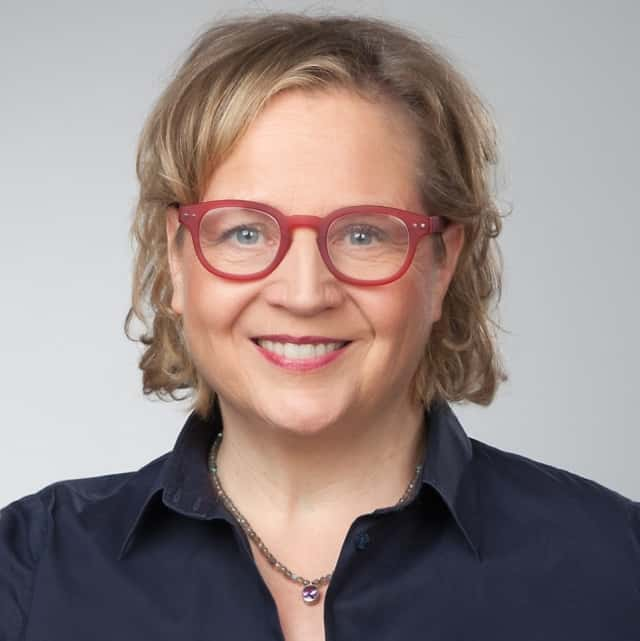Many years of research pay off!
Surgeons focus on two aspects during an operation: firstly, the safety of the patient, and secondly, the efficiency of the entire operation process. Surgical time is the most expensive time in a hospital. Every minute saved reduces the burden on the health system. And any solution to increase patient safety in the OR is essentially the right solution.
In a two-year research project, the physician and TU Delft doctoral student Frédérique Meeuwsen investigated how both these aspects can be best taken into account through the use of technology. The research work ended in February with a first live use during a laparoscopically performed operation on an inguinal hernia.
For the first time, the RFID tracking solution developed in the research project for instruments used during surgery was able to prove its efficiency. Now the results from the research work are to be transferred into scalable solutions. In addition to increasing patient safety and efficiency in operating theatres, there are other objectives for the RFID identification of instruments.
Compiled by RFID & Wireless IoT Global with information from Frédérique Meeuwsen, PhD student at TU Delft, the Reinier de Graaf Hospital in Delft and Van Straten Medical
Pioneering project: Extensively tagged surgical instruments in use
In February 2019, after intensive preliminary studies lasting a total of around ten years and a two-year concrete scientific examination, the time had come: Reinier de Graaf Hospital in Delft became one of the first hospitals worldwide in which surgeons tested an RFID solution directly in the operating theatre. In the application developed for Reinier de Graaf Hospital, all the medical instruments used are marked with a miniaturised RFID tag.
The RFID tag makes it possible to track and monitor all the instruments used live and in real time on a dashboard directly at the operating table.
The RFID project in the operating theatre was carried out in cooperation with TU Delft, Van Straten Medical, a manufacturer of medical instruments, and the surgical research team of the hospital Reinier de Graaf under the direction of the physician and doctoral student Frédérique Meeuwsen from TU Delft.
Many years of research pay off
The research and development of solutions to optimise process efficiency in the operating theatre started at the TU Delft about ten years ago. For Associate Professor Dr. John van den Dobbelsteen, the RFID-based tracking & tracing of surgical instruments is part of the “Safe Surgical Signature” digital system.
The steps taken in digitising this area are illustrated by the fact that seven years ago only large instruments or racks were equipped with RFID tags as large as pill boxes. Smaller instruments were marked with coloured plastic rings or barcodes.
One of the guiding principles of Safe Surgical Signature is that the automatic registration of surgical instruments via RFID can signal the end of an operation. This signal, transmitted to personnel outside the operating room, means that no time is lost in preparing the next patient for surgery.
Usage and maintenance data can be documented
Jeroen Koffeman, master‘s student at Delft Technical University, has designed different steel fasteners for RFID transponders on various instruments that are sufficiently robust to withstand the various sterilization processes including heat, chemicals, and high pressures. Van Straten Medical produced a complete surgical instrument set based on these prototypes.
During surgery, RFID antennas installed on posts in the immediate vicinity of the patient capture all marked instruments brought into or out of the immediate surgical area.
The surgical instrument manufacturer Van Straten sees the potential for further applications in the captured data. For example, the system could be expanded to track how often a specific instrument is used.
“The use of RFID technology also makes a major contribution to efficient instrument management and sustainability in care. Track & Trace provides information on whether there is sufficient care and when instruments need to be replaced or maintained. Our goal is to use instruments longer through repair and overhaul. Or, when they can no longer be used, to melt them down so that hospital waste becomes a new raw material for new products. This brings significant savings for hospitals and contributes to our goal of being able to use medical devices in a cycle,” says Bart van Straten, General Manager of Van Straten Medical.
Improving patient care, saving costs
“By innovating together and looking ahead, we can improve patient care with good ideas and technologies.” says Maarten van der Elst, a trauma surgeon and coordinator of the surgical research team of the hospital Reinier de Graaf. “As surgeons, we focus on patient safety and efficiency because surgery time is the most expensive time in a hospital. And above all else, patients value safety. That’s why we developed this system, which enables us to achieve both of these goals. Because we can monitor all of the instruments, we know for certain that any instrument entering the OT will leave it again as well. Counting occurs automatically with this track and trace system, and that saves time. It unburdens assistants so they can focus on their primary task: caring for patients.”
Successful proof-of-concept, but no rollout (yet)
Despite the promising advantages, RFID tags are not used in standard operations at the Delft hospital. For the development team, the research work including the live demonstration was a successful proof of concept and a further step towards a digital operating theatre of the future.





